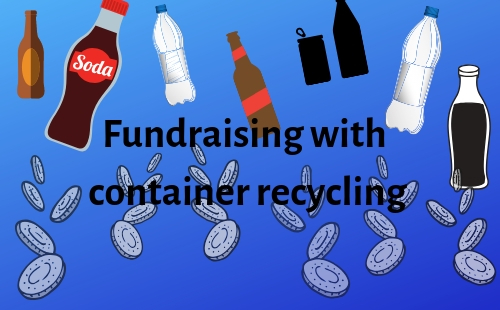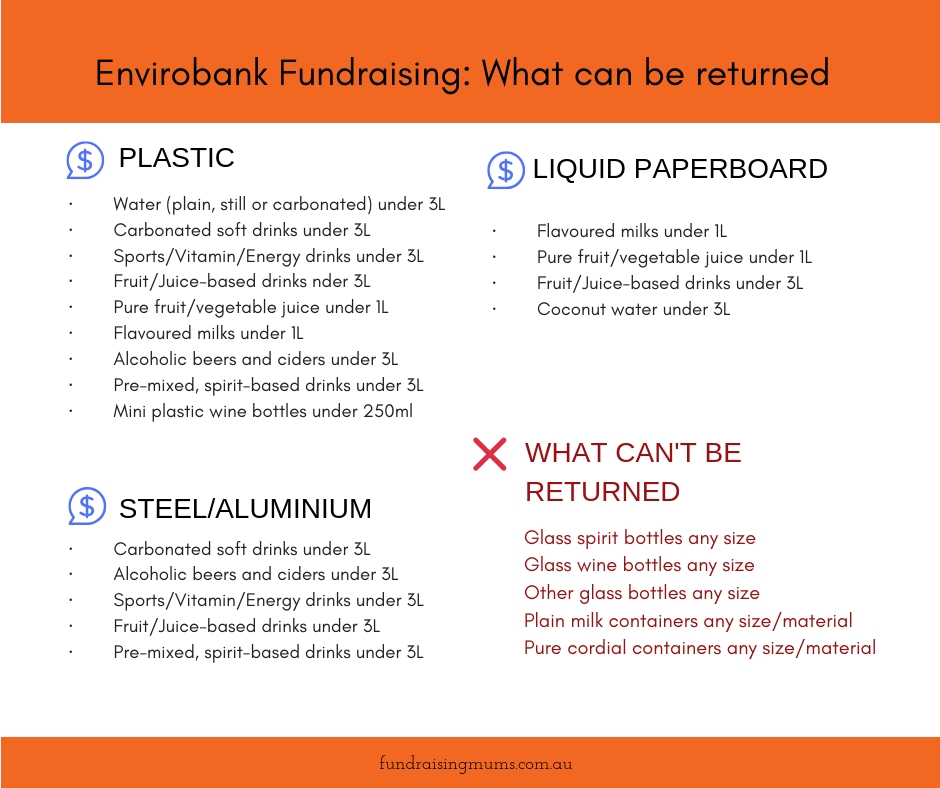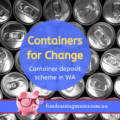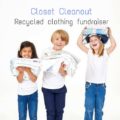Container deposit schemes operate in most states of Australia, and were originally created to reduce the amount of litter that was found in parks, beaches and other public places. The legislation means that an extra 10 cents is added to the cost of single-use beverage containers, which can be redeemed when returned to an eligible collection point.
Envirobank operates under the Scheme to provide a variety of Container Refund Services to the community. Among these, Envirobank offers a fundraising program for schools, sports clubs and community groups allowing them to clean up their local areas, reduce waste, promote sustainability and best of all – raise funds.
In a nutshell:
Idea: container recycling (returning cans and drinks bottles and collecting the 10c refund)
Suitable for: primary and high schools, sporting clubs, community groups such as Men’s Sheds, Guides, Scouts in certain states*
Profit: $100s-$1,000s every year
*Currently Envirobank operate fundraising opportunities in the Northern Territory, New South Wales, and Queensland.
What is container recycling?
Eligible containers such as aluminium drink cans and water bottles are collected and returned for a 10 cent deposit per item.
How does fundraising with Envirobank Work?
When your school or club signs up to the program you will receive collection bags and a marketing kit. You can put a call out to the entire local community (not just your school families or club members) to assist your fundraising efforts and ask them to drop off eligible containers to a safe location. When your bags are full you can return the containers to Envirobank or call for a collection (for a small fee of 300 containers/equivalent to $30), and they will arrange your refund to be processed into your school/club bank account.
How much money can we make?
If every student in a school of 250 brought in only two items a week each, the school would make $2,000 every school year (assuming 40 weeks of school).
A school of 500 students, if they each brought in 5 items a week could make $10,000.
When you add in staff, local community members and the fact that some families could easily drink 10+ beers, 10+ cans of soft drinks, and 10+ juice boxes a week – the potential to earn money is virtually unlimited. You can also collect containers all year round if you have somewhere at your school which is accessible out of normal school weeks.
If you are a sports club who has regular meets and sell bottled water, beer and soft drinks after each game, there is potentially thousands of dollars you can make from recycling.
Does it cost anything?
Apart from the 300 container fee ($30) for having Envirobank visit your school/club to collect your containers and replace the bags, there is no additional cost involved in recycling through Envirobank. Envirobank is a commercial business and receives a handling fee per container from the network operators.
What containers can be returned for profit?
It’s important to remember why the deposit schemes started in the first place – the emphasis was not recycling but reducing litter, therefore the containers that are eligible are the ones you most see frequently dropped along the side of the road, in parks and in other public spaces.
Therefore soft drink cans, juice boxes, water bottles, and beer cans are eligible but 2L milk bottles, wine bottles and cordial bottles are not.
While glass bottles are normally accepted through the container deposit schemes, it is not accepted through the fundraising programs, as a safety consideration. These bottles and containers can still be recycled through the normal household channels.
Most containers made from plastic (PET/HDPE), aluminium, steel and liquid paperboard that are between 150ml and 3L are eligible for a refund. However there are some exceptions, and only beverage containers are eligible – for example, a 500ml plastic shampoo bottle is not eligible for a refund.
It is very important that all containers must have the 10c refund marking (the label should be intact), be empty and uncrushed/unbroken.
What are the benefits of container recycling?
Promotes sustainability and awareness of the environment.
Great for the local environment (kids can visit the local parks and waterways to find eligible containers).
No sugar, no sales.
Can be highly profitable.
You can engage the wider community.
You can feel good about it.
What are the cons to container recycling?
There are two main issues which need to be considered.
The first is that you are requesting your community to donate their empty containers to your cause, so you can collect the money. It must be remembered that they would otherwise be able to collect the money themselves. To negate this, you can always promote your fundraiser by saying ‘we will take your empty containers off your hands for you, you are helping the environment and helping a good cause at the same time.’
The second issue is one of space. When you sign up with Envirobank you will be provided with enough bags for every student (measuring approx. 910x560mm) and in certain circumstances 240L bins which can be kept onsite. Each school/cause needs to determine whether you want individuals to take the bags home and return them full on a pre-determined collection day, or if you want people bringing empty containers in weekly and storing them onsite. Envirobank will work with each group to determine the best way of collecting and storing containers between collections.
Where does Envirobank offer recycling opportunities?
Currently there is State and Territory legislation covering New South Wales, the Northern Territory, Queensland, South Australia and Australian Capital Territory. Western Australia’s scheme will be starting in October 2020 and is called Containers for Change. Envirobank currently operates a range of services in NSW, NT and Qld – please contact them to see if your area is currently serviced by the fundraising program.
For more information: visit the Envirobank website here https://www.envirobank.com.au/fundraising/
For container recycling in Western Australia click here.





